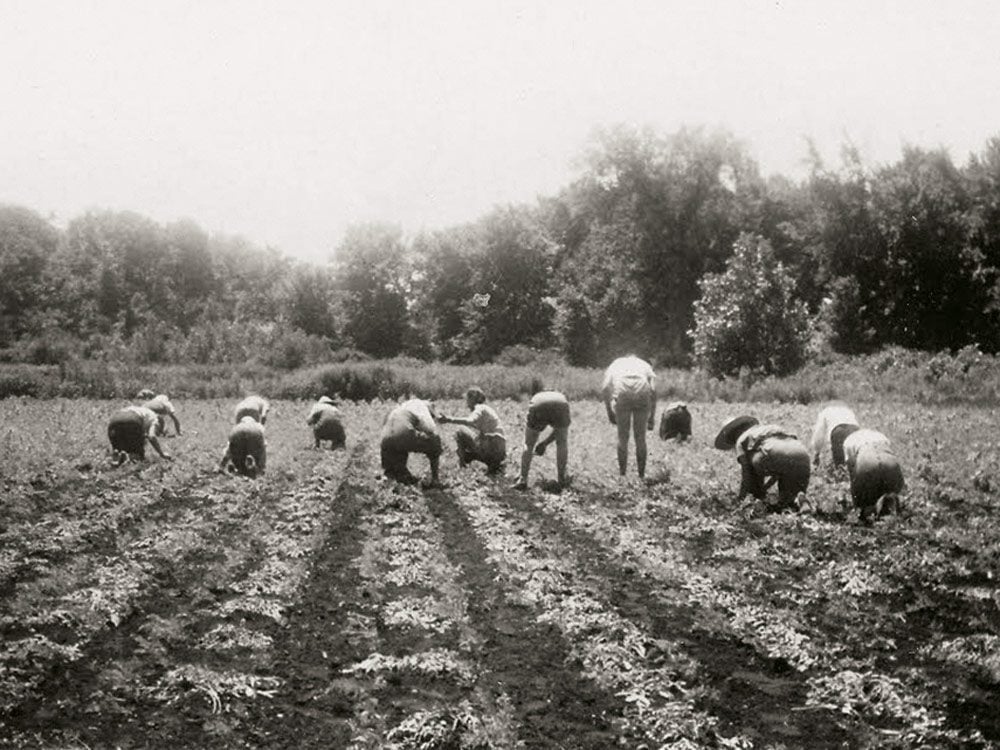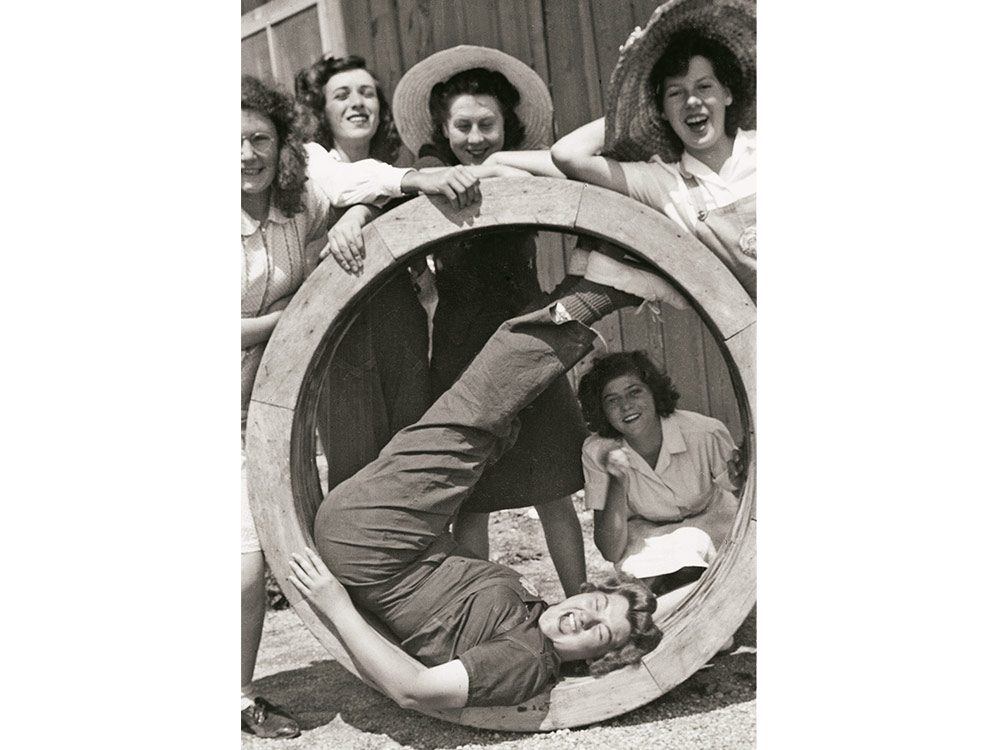
Farmerettes helping at home
The young women who answered the call to work on market garden farms and orchards in Ontario during World War II have been largely forgotten, but that is about to change.
I decided to write a book about their significant contribution to the war effort after several things fell into place.
I was sorting through old photos after my husband passed away in August 2016. Among them I discovered two small black-and-white photos with the same three girls in each one. On the back was written simply “Farmerettes,” but no individual names. I was sorry I’d never asked my husband about the Farmerettes who worked on his family farm. He was under 10 at the time so I imagine he wasn’t particularly interested in what they were doing.
I decided to start researching their story, as I was curious. From the research I wrote an article for The Rural Voice, which is published monthly in Blyth, Ontario, and after appearing in June 2018, it garnered a good response from its readership. In the August issue, there was a letter to the editor written by Shirleyan English of London, Ontario.
She had worked on my in-laws’ farm in 1952 and had spent the summer at Farmerette Camp No. 6 in Thedford, Ontario. She recalled it as having been the best summer of her life. I contacted her and discovered that she had letters in her possession written to her by Farmerettes in response to a request she had had published in some major newspapers across Ontario in 1995.
I immediately blurted out, “We are going to write a book!”

The war years
When the farm labour shortage was acute during the war years, these young women planted, hoed, hand-weeded, thinned, staked, picked fruit and harvested vegetables. Helping to increase food production for Ontario (and Great Britain) was so important.
As the advertisements showing men in uniform stated, “We Can’t Fight If We Don’t Eat. We Won’t Eat If You Don’t Help Ontario Farmers This Summer.”
The Ontario Farm Service Force initiated the Farmerette program in 1941 and it continued until 1953. In conjunction with the YWCA, the Department of Agriculture as well as the Department of Education, Farmerette Camps were established and farmers and growers subscribed to the plan.
The number of girls needed was tallied and with the help of the CBC and newspapers in cities and towns from North Bay to Ottawa and beyond, the word was spread about how girls 16 years of age and older could serve their country and spend their summer at camp. Announcements were made at high schools, too, inviting girls to apply to Ontario Farm Service Force and “Lend a Hand.”
The YWCA was put in charge of hiring camp mothers. Cooks and labour secretaries were hired, army bunk beds and cots were secured and camps were often established in old buildings. Some locations in the Niagara area had tents in orchards, while others were housed in high schools and empty motels.
Tales abound about the daily grind but also about the fun they had. Most girls, despite having sore backs and being sunburned, stayed the required length of time to have their return fare paid by the government, as well as the guarantee of graduating the school year without writing the final exams.
Stories, in the form of letters and essays, have been collected detailing first-hand experiences of these girls. The common theme in nearly every one was “We worked hard but it was the best summer of my life.” In fact, many girls went back a second year or more and often took their sisters with them.
Check out Bonnie’s book, titled Onion Skins and Peach Fuzz: Memories of Ontario Farmerettes (Attic Books, 2019).
Next, read up on more Canadian heroes you might not know about—but should.